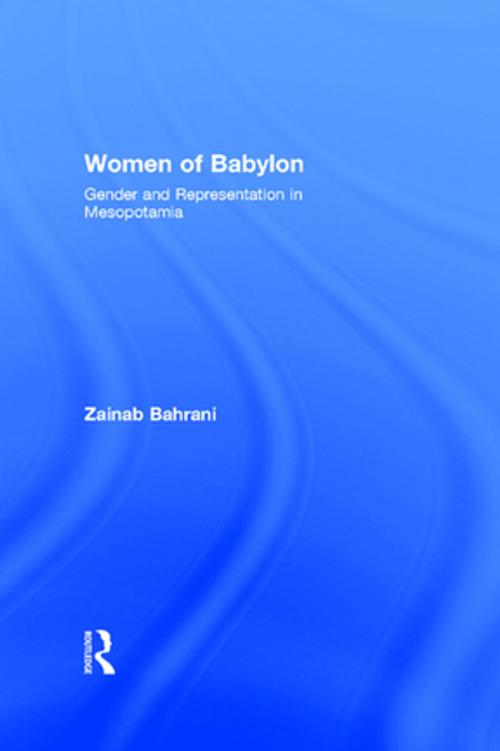Women of Babylon
Gender and Representation in Mesopotamia
Nonfiction, Social & Cultural Studies, Social Science, Archaeology, Gender Studies| Author: | Zainab Bahrani | ISBN: | 9781134601400 |
| Publisher: | Taylor and Francis | Publication: | March 7, 2013 |
| Imprint: | Routledge | Language: | English |
| Author: | Zainab Bahrani |
| ISBN: | 9781134601400 |
| Publisher: | Taylor and Francis |
| Publication: | March 7, 2013 |
| Imprint: | Routledge |
| Language: | English |
Representations of sexual difference (whether visual or textual) have become an area of much theoretical concern and investigation in recent feminist scholarship. Yet although a wide range of relevant evidence survives from the ancient Near East, it has been exceptional for those studying women in the ancient world to stray outside the traditional bounds of Greece and Rome.
Women of Babylon is a much-needed historical/art historical study that investigates the concepts of femininity which prevailed in Assyro-Babylonian society. Zainab Bahrani's detailed analysis of how the culture of ancient Mesopotamia defined sexuality and gender roles both in, and through, representation is enhanced by a rich selection of visual material extending from 6500 BC - 1891 AD. Professor Bahrani also investigates the ways in which women of the ancient Near East have been perceived in classical scholarship up to the nineteenth century.
Representations of sexual difference (whether visual or textual) have become an area of much theoretical concern and investigation in recent feminist scholarship. Yet although a wide range of relevant evidence survives from the ancient Near East, it has been exceptional for those studying women in the ancient world to stray outside the traditional bounds of Greece and Rome.
Women of Babylon is a much-needed historical/art historical study that investigates the concepts of femininity which prevailed in Assyro-Babylonian society. Zainab Bahrani's detailed analysis of how the culture of ancient Mesopotamia defined sexuality and gender roles both in, and through, representation is enhanced by a rich selection of visual material extending from 6500 BC - 1891 AD. Professor Bahrani also investigates the ways in which women of the ancient Near East have been perceived in classical scholarship up to the nineteenth century.















